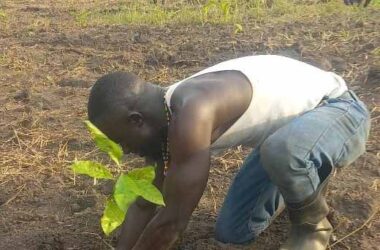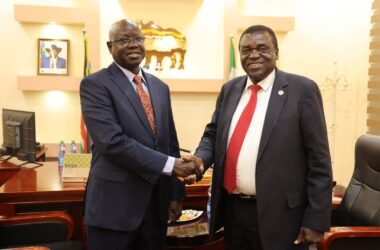By Philip Buda Ladu
South Sudan united on Monday to honor the indispensable contributions of nurses and midwives in a joint celebration of International Day of the Midwife and Nurses at Juba Teaching Hospital.
The event, organized by South Sudan Nurses and Midwives Association (SSNAMA), brought together health officials, development partners, and UN agencies to recognize.
The Officer-in-Charge of UNFPA, Suzanne Mandong, delivered a powerful address, lauding nurses and midwives as “our national heroes” and the “most vital pillars of our health system.”
She highlighted the emotional relevance of this year’s themes – “Midwives: Critical in Every Crisis” and “Our Nurses. Our Future. Caring for Nurses Strengthens Economies” – within the South Sudanese context.
“Midwives are critical in every crisis, operating on the frontlines in conflict zones, flood-affected areas, and overstretched health facilities,” Ms. Mandong emphasized.
She further noted the broader economic impact of a supported nursing workforce, stating that “caring for nurses strengthens economies, as their empowerment leads to functional health systems, thriving families, and stronger nations.”
Amidst heartfelt appreciation and recognition of their pivotal role, echoing this sentiment and adding a crucial local perspective was Repent Khamis, the President of the South Sudan Nurses and Midwives Association.
In his address at the occasion, Mr. Khamis stressed the combined strength of the professions, united for one crucial goal.
“Today, we gather as one united profession, recognizing and celebrating the indispensable contributions of both nurses and midwives to the health and well-being of our communities, our nation, and the world at large.” He stated
Mr. Khamis passionately highlighted the critical role of midwives in crisis situations, providing a vivid example from the 2022 floods.
“In Unity and Jonglei states, despite submerged health facilities and cut-off roads, midwives continued working, using boats and walking long distances to reach expectant mothers. They even set up temporary clinics in schools, tents, or under trees to ensure safe deliveries.” He highlighted.
He emphasized that midwives offer “hope, resilience, and the ability to deliver life amid adversity,” often being the sole providers of maternal health services in challenging environments like Protection of Civilian (PoC) sites.
Turning to nurses, the SSNAMA President declared them “the heart and soul of our healthcare systems,” acknowledging their tireless work in clinics, hospitals, and remote areas.
“Our future is dependent on the health of our people, and our people’s health depends on the care that nurses provide,” Mr. Khamis asserted.
He stressed the need for investment in nurses through improved working conditions, professional development, and recognition to strengthen the nation’s recovery and rebuilding efforts.
Both Ms. Mandong and Mr. Khamis called for continued and increased support for nurses and midwives.
Ms. Mandong reaffirmed UNFPA’s commitment to investing in their education, advocating for their rights, and championing their leadership, emphasizing that “when we invest in you, we invest in healthier mothers, safer deliveries, empowered girls, stronger health systems — and ultimately, a stronger South Sudan.”
Mr. Khamis issued a direct “call to action” to policymakers, donors, and community leaders to prioritize the healthcare workforce, advocating for better pay, working conditions, mental health support, and professional development.
He concluded with a powerful message of solidarity to the nurses and midwives of South Sudan.
“You are the heart of our healthcare system… Your work is invaluable, your dedication is unmatched, and your resilience is an inspiration. Today, we honor you, we thank you, and we pledge to support you in every way we can.” He added.
The joint celebration served as a touching reminder of the unwavering commitment of South Sudan’s nurses and midwives, who stand as dual pillars in building a healthier and more resilient future for the nation.




